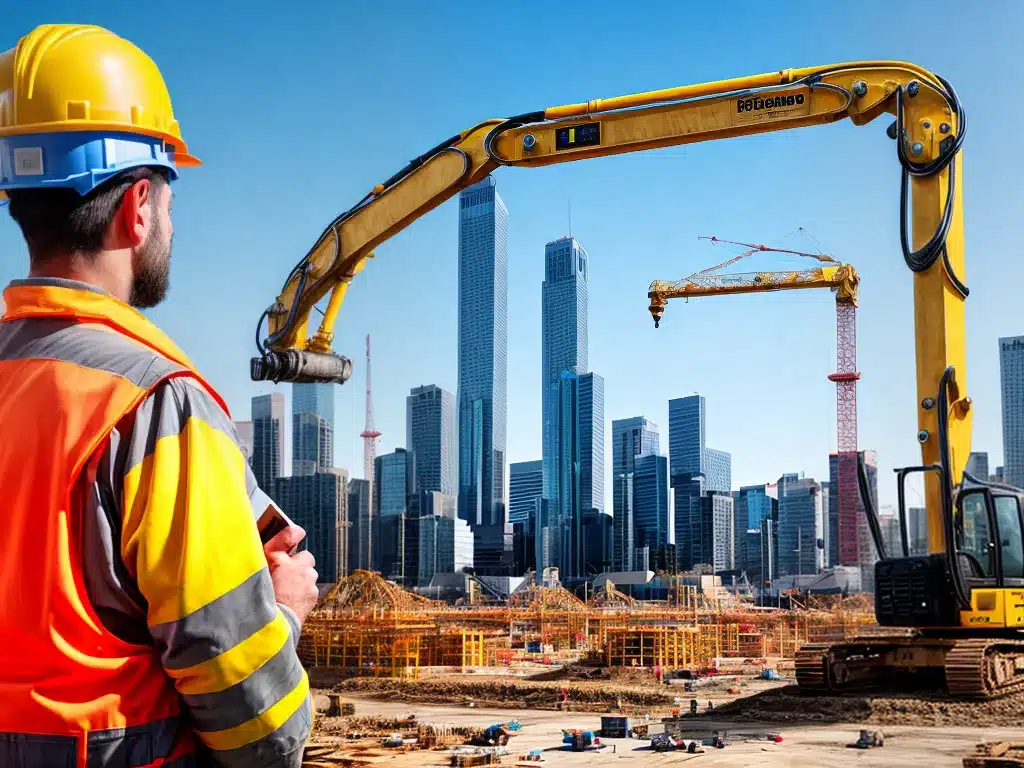
IoT in the Construction Industry
The Internet of Things (IoT) is transforming the construction industry. Here is an in-depth look at how IoT is impacting various aspects of construction.
How IoT is Improving Construction Site Safety
Construction sites can be dangerous environments. IoT sensors and wearable devices are helping to improve site safety in several ways:
-
Worker wearables – Smart helmets, vests, boots, etc. can monitor workers’ vital signs, location, and environment. They alert both workers and managers about hazardous conditions or lack of movement. This allows for rapid response to injuries or accidents.
-
Machine sensors – Sensors on machinery like excavators can detect unsafe operating parameters like excessive vibration or tilt. They can automatically shut down equipment to prevent accidents.
-
Environmental monitoring – Air quality, temperature, noise and radiation sensors around the site create a safety profile. Alerts are triggered if preset limits are exceeded, helping prevent illness or injury.
-
Video analytics – Smart cameras with video analytics can detect unsafe behaviors like workers not wearing safety harness at height or unauthorized areas. They enable real-time interventions.
IoT safety initiatives have led to fewer accidents, reduced insurance costs and better compliance with safety regulations for construction firms. Workers also feel more secure and productive.
How IoT Enables Real-Time Project Management and Collaboration
IoT sensors integrate data from across the construction site into centralized software platforms. Key benefits for project managers include:
-
Real-time location tracking – Sensors track the exact location of machinery, equipment and materials. This improves logistics planning and reduces misplaced items.
-
Remote asset monitoring – Critical equipment like generators can be monitored remotely, predicting breakdowns and reducing downtime.
-
Automated progress tracking – Drone videos, LIDAR scans and image recognition calculate real-time progress against schedules. Issues can be identified and addressed early.
-
Process optimization – Sensors on equipment and worker wearables collect data on efficiencies. Insights can be used to streamline processes.
-
Increased collaboration – Data sharing via IoT integrates workflows between owners, contractors and sub-contractors for smoother project delivery.
IoT enables more efficient and transparent project execution, with better oversight, accountability and insights.
How IoT Improves Quality and Completion of Construction Projects
IoT aids construction quality and asset performance in the following ways:
-
Precision tracking – GPS and laser positioning systems guide construction equipment and robots, enabling accurate fabrication and assembly.
-
3D printing – IoT systems tightly control robotic 3D printers, improving speed, accuracy and material savings in printed buildings.
-
Quality testing – IoT sensors monitor moisture, vibration and curing of concrete slabs. They ensure compliance with design specifications.
-
Commissioning – Smart sensors perform automated testing of water, lighting, HVAC and electrical systems. This ensures assets are functioning optimally before handover.
-
Defect reduction – Image recognition on drone footage highlights cracks, sags or holes for early rectification. This reduces costly post-completion fixes.
-
Digital twins – IoT data creates mirrored digital models of assets, allowing virtual testing of performance before actual commissioning.
By enhancing build quality, IoT reduces costly delays and leads to better-performing, longer-lasting assets.
The Future of IoT in Construction
Experts predict promising growth in these IoT construction applications:
-
Fully autonomous equipment like bulldozers, cranes and bricklaying robots, improving safety and productivity.
-
Predictive maintenance of assets using AI analysis of sensor data to minimize downtime.
-
End-to-end supply chain tracking of all materials and components using blockchain and RFID tags.
-
Augmented and virtual reality to streamline remote collaboration, operator training and client handover.
-
AI-enabled design software that can create optimized construction plans factoring in cost, timing, materials, etc.
While still evolving, IoT has tremendous potential to transform how we design, build and operate construction projects. Adoption will be driven by proven benefits in safety, efficiency, sustainability and asset performance. The most innovative construction firms are already embracing IoT on their projects today.












